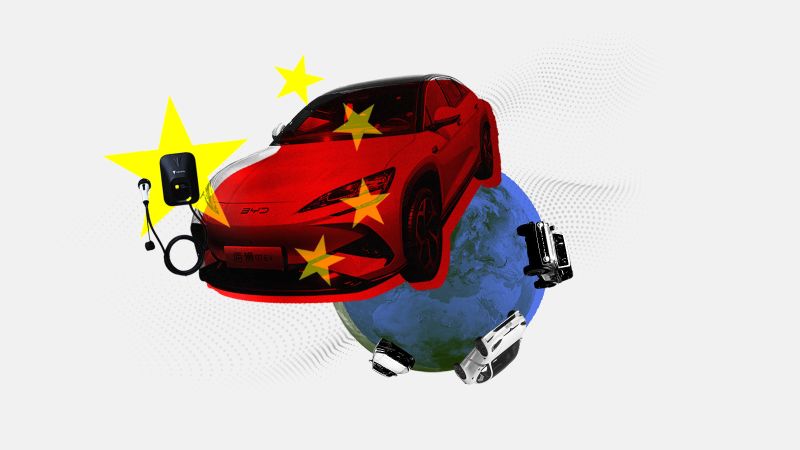The streets of Beijing have changed dramatically within just a few years. The noisy, smelly thrum of traffic has been replaced by an unusual quiet for a megacity. Roads course with a stream of mostly electric vehicles, all with their distinct, green license plates.
This is not just a Beijing phenomenon. For those arriving in many of China’s major cities from countries dominated by gas-guzzlers, the quiet will be their first impression, said Li Shuo, director of the China climate hub at the Asia Society Policy Institute.
It’s like stepping into the future, he told CNN.
By any measure, China’s EV growth has been extraordinary. More than half of new cars sold are electric, putting the world’s largest automarket on a path to all but erase gas-powered cars over the coming decades. Last year, China’s EV sales soared to 11 million, a nearly 40% increase on 2023, according to data from UK research firm Rho Motion. It’s an “irreversible transformation,” Shuo said.



Trumpism will pass, and gasoline cars go the way of the horse and buggy. The US will just take longer to catch up with the rest of the world’s progress.
I’d like that to be the case, but nearly every US city, no matter the size, is designed for cars. And the connections between cities prioritize highways, not rail. The US might be able to adopt electric cars, but it’ll never be able to create the kind of walkable, bike-friendly, public-transport focused cities, because that would entail pulling up a lot of cities and neighborhoods by the roots. Once that is built up, its nearly impossible to undo it, and your only choice is to add innefficient kludges on top.
This is why it’s so crucial to do what China and a lot of Asian countries did, and priorizite metro/rail first, and not build your cities around highways.
Old east coast cities were built around streetcars
There’s a good episode about how they destroyed new york’s neighborhoods and rebuilt it around the car: https://m.youtube.com/watch?v=bb1IijxVR7c
US looks more and more left behind every decade…
Bruh, what’s your public transit solution for folks living outside major metropolitan areas (something the US has in spades)? When someone says small town America think towns with sub 5,000 people.
There are small towns in Japan sub 5000 right next to their shinkaisen bullet train
You’ve never been to rural Japan if you think they primarily use public transport.
Hell, even in the outskirts of Tokyo most people have cars and drive.
That said tho, there’s no excuse for urban city centers to not be walkable.
My experience was on the train line so I have major bias lol
Even in Europe most rural small towns I saw in, say, the Alsace region had a bus line at best but most used cars.
That bus in the countryside is scheduled every hour from my experience? No nice frequencies, especially if you are tired and want to get somewhere.
I feel like small towns should have a locally developed and mantained Uber-ish app. There is really no reason as to why people and families that work in the same place, live close to each other, send their kids to the same school, and have known each other for decades (as is the case in small towns) don’t commute together to work or church or whatever.